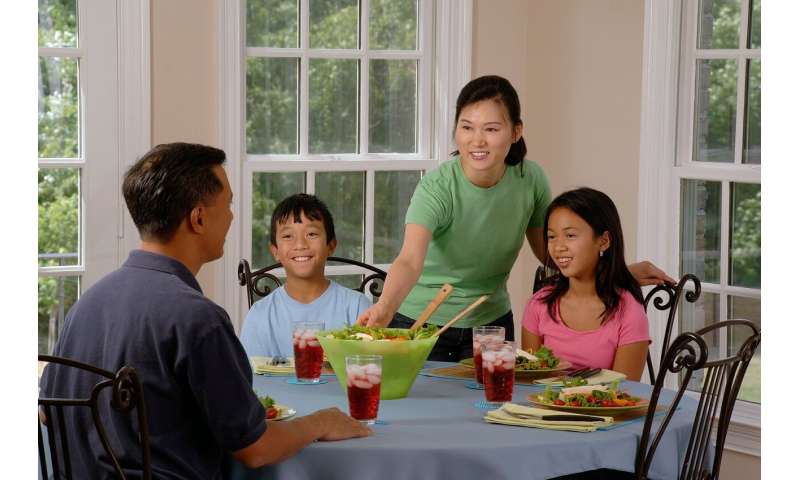
For Listiner Martinez, the holiday season never brought feelings of merriment. Coming from an abusive home, she said, she never really celebrated the holidays. Martinez said she tried to move past that feeling when she had children, but sadness around the holidays still lingers.
“I typically look forward to when the holidays are over with,” said the West Ridge mom of three who has been diagnosed with depression, anxiety and seasonal affective disorder—a mood disorder that occurs at the same time each year. Diet and exercise are tools Martinez uses in her mental health journey, but so is therapy.
Before the pandemic, the mental health advocate said she was seeing her therapist once a month. Then Martinez was diagnosed with breast cancer in January. After surgery, the stay-at-home order meant Martinez wasn’t allowed to bring someone with her during chemotherapy, which started in April.
“I tried to adjust … but it really took a toll on me emotionally,” she said. “I had people who would check in on me. Friends would video chat … but it was just overwhelming.”
Dr. Aderonke Bamgbose Pederson, instructor of psychiatry and behavioral sciences at the Northwestern University Feinberg School of Medicine, said mental health challenges are more likely to have an impact on people of color, especially in Black communities.
Public stressors created by the pandemic often worsen for people in the communities most impacted, she added. Data has shown that people of color for example are more likely to get the coronavirus.
“When we look at this year, racial trauma is a compound stressor,” she said. “You have multiple different stressors in terms of the pandemic that disproportionately affects these communities already at greater risk.”
Multigenerational family households are also more common in Black and Hispanic communities, she said. The pandemic adds pressure in families with members at high risk, creating different levels of burden.
Adrienne McCue, founder and CEO of Step Up For Mental Health, realizes people are struggling. As the child of a late parent who had schizophrenia, McCue created the nonprofit to help families dealing with mental health issues. Step Up volunteers offer one-on-one peer support to clients by phone or video conference once a week for an hour in four-week or eight-week timeframes. The organization assists different populations with small grants and resources, including the bisexual community.
“This is the time where people can bottom out through situational depression and anxiety about jobs, about how I’m going to feed my family,” McCue said. “And if you had somebody who could talk to you just for a stretch of time, that would get you over the hump. … We believe that peer support facilitators are so important to start the process of thinking about talking to someone. We want to say, ‘It’s OK, you can talk to somebody.’ Once they get that eight weeks of peer support, they’re like: ‘You know, what? This wasn’t so bad. Can you help me find (a therapist)?'”
Martinez agrees and says people should not go through this difficult time of year alone. She said her support system of family and friends “showed up and showed out” during her breast cancer treatment. Now she shares her mental health journey with others full time to help them move through trauma. Her next virtual conference is Dec. 19; panelists will touch on mental health and self-care.
“I always tell people: I love God, but therapy is important too,” she said. “I recommend it, even when you’re not in a bad place. Like how you have a lawyer on hand? You should have a therapist on hand.”
“It’s an understatement to say that this holiday season will look different,” said Tytannie Harris, CEO of TMH Behavioral Services. When the Bronzeville practitioner talks to her clients—kids as young as 4 and adults as old as 90—about how to cope, she offers this advice:
Acknowledge how you feel and know that it’s OK to take time to cry or express how you feel. “And don’t feel like you have to force yourself to be happy just because it’s the holiday season, especially now,” said the licensed clinical social worker.
People should reach out to family members and friends, especially those who live alone. “Technology has to be our best friend during this time,” she said. “If you’re feeling distressed, it’s OK to reach out with a text, call or video chat.”
Be realistic. Don’t put pressure on yourself and feel like it has to be perfect, or “I have to try to re-create last year,” because we can’t. “This may be a new time to develop new rituals within your families,” Harris said. “I think one thing we don’t talk about enough, especially now, is sticking to a budget. We may feel guilty because we can’t be with family, and we may want to overindulge in gift giving. I tell my clients: Don’t buy happiness with an array of gifts, with the overhaul of gifts. Make sure you’re doing what’s within your budget.”
And when feeling sad is affecting your day-to-day functioning in a negative way, that’s when you know you should talk to someone. “If you’ve gone from ‘this is something minor,’ to ‘this is something that could potentially be more significant,’ I would encourage folks to seek mental health services,” she said.
TMH is staffed with Black clinicians, and Harris said she knows people want to talk to people who look like them. The practice has programs for Black men and their mental health, and she is touching base with her senior clients more frequently, as well as sending them self-care packages, Harris said.
Source: Read Full Article






